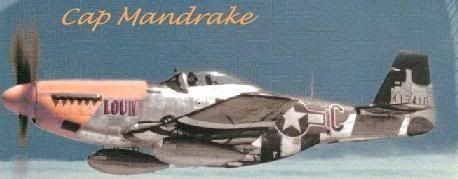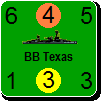neuromancer
Posts: 627
Joined: 5/30/2002
From: Canada
Status: offline

|
My quick nickle, which mirrors what a lot of other people said.
I don't think even the biggest hot heads in Japan ever seriously beleived they could conquer the US, and so I don't think that was ever the plan.
I always beleived the goal was - as stated - to 'shock and awe' the US out of the war. Hit the US hard and fast, cripple their ability to effectively fight in the Pacific, and then negotiate a peace.
I think it actually might have worked, if two things hadn't happened.
1. Pearl Harbour was supposed to be a surprise attack while at war. Not a sneak attack while at peace. The military difference would have been negligable, maybe the US forces might have been a little more prepared with an hour or two notice, but not enough to make any significant difference.
The key difference is that a surprise attack at war is "Blast, we got caught with our pants down!"
It happens, its part of war.
But a sneak attack while at peace? 63 years later it still gets the blood of some Americans boiling. It was seen as a horribly cowardly and underhanded act.
I understand that not only did Yamamoto understand that the attack 'woke the sleeping giant', but he also understood that the US could never forgive such an insult. PH alone probably guarenteed that the US would not back down.
2. Even if PH had gone as planned, and the US had come away with a bloody nose, but it had been a proper wartime action and thus the US had not been filled with righteous anger, they still had to destroy the US ability to fight in the Pacific. Thus Midway had to go in favour of Japan, not as the crushing defeat for Japan that it was.
So if Pearl Harbour had gone as planned, or more accurately, if some dim bulb clerk in Washington hadn't delayed delivery of the DoW for two hours, and then everything else had fone more or less the way it had historically, except instead of Japan losing at Midway, they had won and the US instead had lost 2 or 3 carriers.
If - and really, it was mostly poor luck (and the abject stupidity of two Japanese people at wo key points in history) that caused the sneak attack at Pearl, and the Japanese defeat at Midway, their planning had been reasonably sound - those had gone as hey should. Then the Japanese might have been able to negotiate a peace with the US.
Now, the next question is, would the US have backed down? Well, that is another matter. It can be argued back and forth whether the US heart would have been in the fight or not, and cannot be proven one way or another (don't quote polls to me, I've studied poli-sci, polls will usually produce the answer you wanted to get when you designed them).
But whether the US would have actually backed down or not is not the question. The question is what did the Japanese think the US would do.
Just as the US had contempt for the Japanese, and didn't think the 'little yellow <bleep>s' could fight (and were proved very wrong, that they could fight quite well), the Japanese had contempt for the US. They felt that the US would be inclined to be isolationist, that they would not have the stomach for a protracted fight, and more importantly would probably be more concerned about fighting for their fellow white allies in Europe than for China and the Phillipines (although a successful invasion of Australia might have been a bad idea then).
Don't forget, this was WW2, and racism was alive and well, on both sides of the Pacific.
And quite frankly, most people will only fight for what actually matters to them. This is simply human nature. Japan probably didn't think the US really cared that much about China and the Phillipenes.
So yes, I think the Japanese did think they could negotiate a peace after a years war if they could bloody the nose of the US enough to get them out of the fight. They could surrender enough territory (uselss chunks of rock like Wake and Midway) to make the US feel there was a comfortable buffer between the US and Japan.
Yamamoto on the other hand, as was pointed out, studied in the US. He knew that they could never win a protracted war, and may have even suspected that the US had more of a stomach for it than his comrades in Japan would ever believe.
So was Japan deluded? Maybe, maybe not. I would say that they wore more likely mis-informed. Or had under-estimated their opponents. As has been pointed out, that is a very common mistake.
To a certain extent the US also under-estimated Japan. Britain under-estimated Germany. Germany under-estimated the Soviet Union. The west under-estimated Korea, the US under-estimated the Vietnamese, pretty much everyone has always under-estimated the Afganis. The US under-estimated the Canadian colonies in 1812. And there were the Zulu, the Indians (East), various African groups (Rwanda, and Somali come to mind), etc., etc., etc.
Under-estimating your opponent is almost human nature.
We are American/ Japanese/ Russian// etc.! We have God/ Bushido/ the Dialectic/ etc. on our side! They are stupid/ weak/ decadent/ etc. and will be destroyed by our rightous might! Yea for us!
Sure, with hind sight we can look back and say "boy were they out to lunch!" but at the time, no one knew that for sure. Even the US wasn't absolutely convinced of victory until maybe sometime in '43 or '44, untl then there were a lot of people chewing their nails.
This was supposed to be quick. Sorry about that.
< Message edited by neuromancer -- 8/5/2004 4:59:58 PM >
|
 Printable Version
Printable Version


















 )
)

 New Messages
New Messages No New Messages
No New Messages Hot Topic w/ New Messages
Hot Topic w/ New Messages Hot Topic w/o New Messages
Hot Topic w/o New Messages Locked w/ New Messages
Locked w/ New Messages Locked w/o New Messages
Locked w/o New Messages Post New Thread
Post New Thread